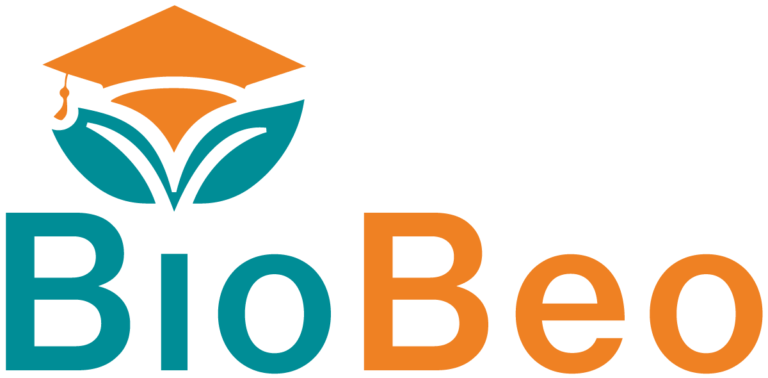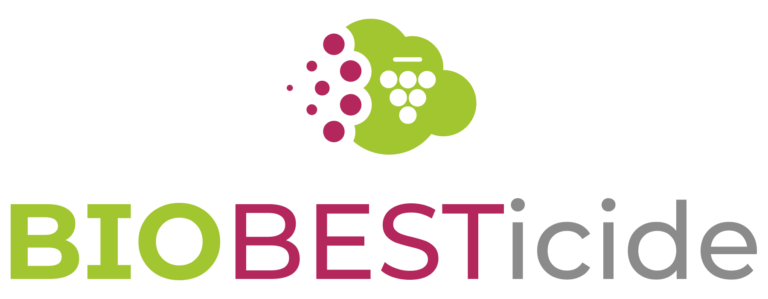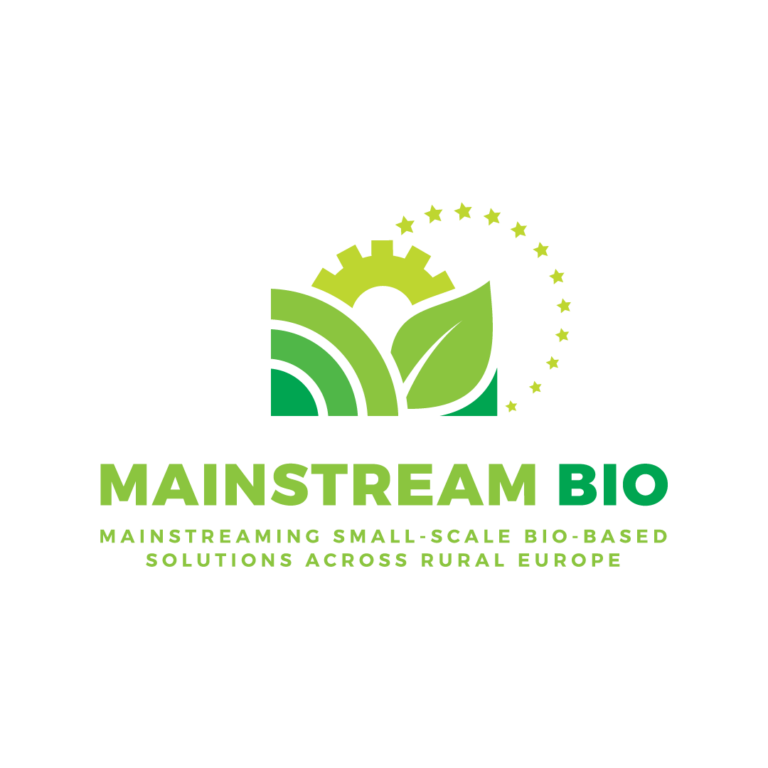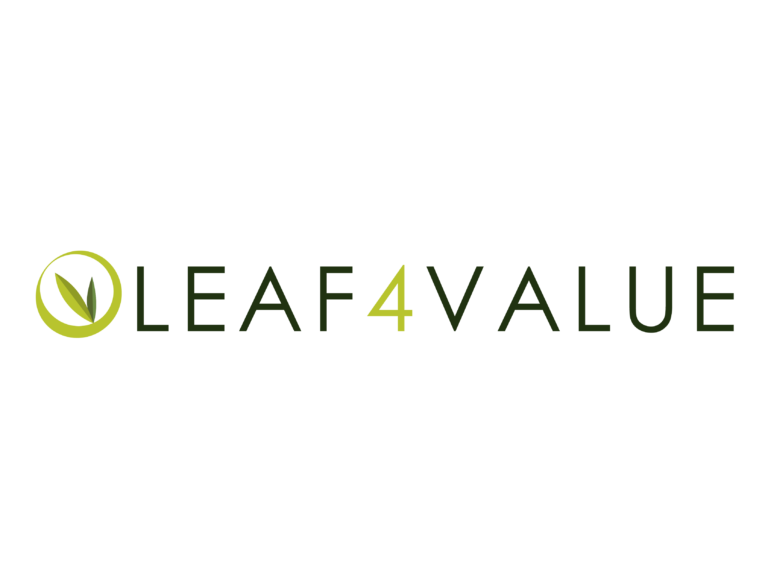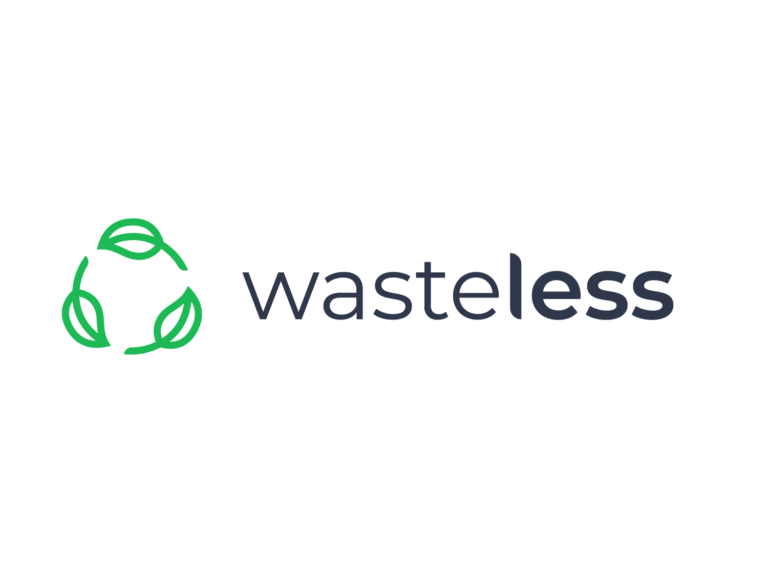The project
Context
We waste too much food and something needs to be done about it – as a priority. Food waste affects the environment, the economy and our communities.
Every year, 41 million tonnes of food gets wasted in the Europe Union during processing. This amounts to 33% of all food waste.
This level of food waste drives up management and operational costs as it requires landfill, transport, and treatment plants.
It also raises social issues. Globally, a third of food produced for human consumption is lost or wasted (1.3 billion tonnes per year). If only a quarter of this were eaten, it would feed 870 million people, 12% of the world’s population.
The project
Model2Bio will develop a predictive model to help identify, select and reuse organic waste streams. The model will specifically cover stream composition, volume and transformation as well as logistics and business cases. The project started in May 2020 and will run until October 2023.
Who is working on it?
Behind this EU-funded project are think-tanks, research centres, technology developers, universities, industry (mainly small and medium-sized businesses) and clusters from Spain, Belgium, Netherlands, Greece, Poland and Germany.
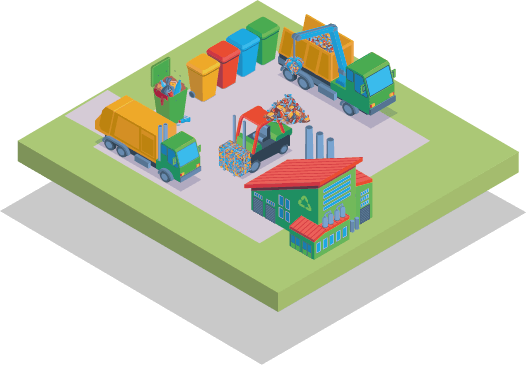
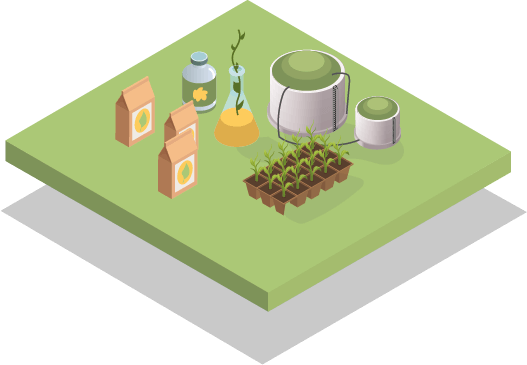
Expected results
- 1. A Decision-Support System Tool
- 2. A methodology for characterisation of organic residual streams
- 3. Simulation Module and Model Libraries
- 4. Microbial composition of various agri-food residual streams and analysis of their interference in fermentation processes
- 5. Methods to stabilise agri-food residual streams
- 6. Extraction and purification process for residual stream valorisation
- 7. Valorisation of various agri-food residual streams by fermentation
Impact
Problems
At different recycling rates per country, the EU as a whole landfilled or incinerated 1 010 M tonnes of waste without energy recovery
*Eurostat, 2016
Potential solutions
To decrease by 10% agri-food waste landfilled or incinerated without energy recovery*
*2028
Uncontrolled disintegration of waste in landfills with high amounts of greenhouse gas emissions
To reduce by 20% the carbon footprint, giving a valorisation for up to 20% of the agri-food waste
One-third of food produced for human consumption is lost or wasted globally (1.3 billion tons per year) *
* FAO, 2011
To transform 30% of residual streams in resources for other bio-industries
Expensive residual streams management, especially during peak harvest
To reduce by 20% logistic and residual stream management costs, by improving storage, transport and management
Conventional ways of managing agri-food waste do not consider it a resource or feedstock for other sectors
To increase income and business opportunities to agri-food and waste management companies
Better insight
about the organic residual stream.
Thorough knowledge about the most relevant biological, chemical, mechanical and thermal processes
in which the agri-food industry residual streams can be reused to obtain added value bio-products and energy.
10% improvement in the yields of fermentation processes.
And 20% in the yields in extraction processes.
10% less agri-food industry waste that is landfilled or incinerated without energy recovery
in EU countries within 5 years of the project ending.
20% smaller carbon footprint
of the total waste management process.
30% of residual streams transformed into resources
for other bio-industries.
Logistic and residual stream management costs down by 20%, through improved storage, transport and management.
To increase income and business opportunities for agri-food and waste management companies.
A stronger and more sustainable European Union food and drink industry,
more environmentally friendly and profitable.
For bio-based industry, 5-10% higher revenue.
New market opportunities for the use of renewable resources. Turning residue management problems into economic opportunities.
A spin-off within 5 years of the project
ending to commercialise the software.
As a Circular Economy project, it has the potential to create new job opportunities.
It is expected that 5 new jobs are going to be created within Model2Bio project.
Outcome
A software platform with a first level of validation in a real-life environment in 4 countries: Spain, Netherlands, Belgium and Greece.
There will be a multidisciplinary team in each territory, called the Model2Bio Validation Club. This club will provide the operational and logistics information to feed the tool, define the scenarios to be verified, evaluate the results obtained by the tool, and propose improvements or new scenarios.
Although many commercial programmes for modelling, evaluation and optimisation of industrial processes exist, Model2Bio will be the only one to simulate the entire value chain and process.
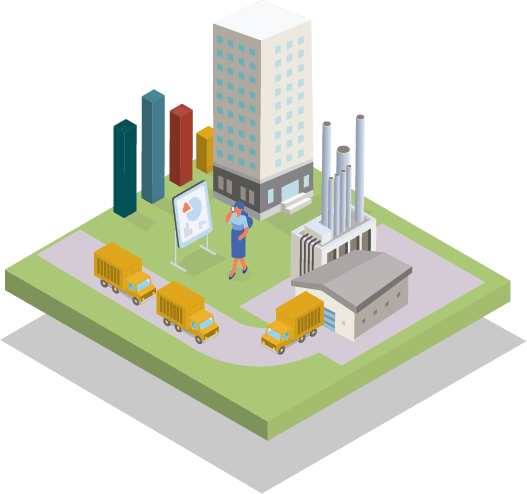
Technology
Model2Bio Simulation Module
It will predict the composition, nature and quantity of the agri-food residual streams, as well as the potential of each stream to be recovered. It includes 4 Model Libraries: production line, residual stream intermediate treatments, bioprocesses and logistics.
Model2Bio Optimisation Algorithm
It will automatically calculate the best alternatives for managing, treating and reusing biodegradable residual streams. This is designed to consider all costs, boundaries and restrictions as way to bringing down global costs.
LCA Module
After the algorithm has identified the best route alternatives, a set of commercial software programmes will evaluate the associated environmental and social impacts. The LCA support is composed of three LCA analyses: Life Cycle Assessment, Life Cycle Cost Analysis and Social Life Cycle Assessment.
Decision-Support System Tool
A software platform that will integrate and combine the Simulation Model, the Optimisation Algorithm and the LCA Module to seek out the best routes for managing agri-food industry waste.
Other exciting research projects
ALIGNED will collaborate with industries and representatives from five bio-based sectors: Construction, woodworking, textile, pulp and paper, and bio-chemicals to harmonize and advance the scientific use of Life Cycle Assessment (LCA) in the bio-based sector.
The models and tools developed in ALIGNED will allow to perform high-quality assessment studies across the bio-based sectors, with industrial relevance and interoperability.
The ALIGNED project has the following 3 objectives:
- Improve, harmonize, and align LCA methodology for the assessment of bio-based industries.
- Demonstrate the power of the methodology to improve the environmental performance of five specific biobased technologies.
- Inform, involve, and empower all relevant stakeholders, enabling an efficient methodological uptake.
BioBeo is a two and a half-year project with 15 partners with the aim to develop and deploy an education programme to enhance engagement across society regarding lifestyle, circularity and bioeconomy, using 5 bioeconomy themes:
– Interconnectedness
– Outdoor Learning
– Forestry
– Life Below Water
– The Food Loop
Partners are committed to promoting the bioeconomy concept and will co-create and co-deliver the programme. BioBeo will provide better coordination between bio-science and education in schools by developing the Circular Economy Science-Society message with a particular focus on circular lifestyle and behaviours, and a governance framework on society-wide engagement in bioeconomy policy. BioBeo addresses social issues such as gender bias, disadvantaged youth groups, migrants and members of society with additional needs.
The BIOBESTicide project will validate and demonstrate the production of an effective and cost-efficient biopesticide. The demonstration will be based on an innovative bio-based value chain starting from the valorisation of sustainable biomasses, i.e. beet pulp and sugar molasses, and will exploit the properties of the oomycete Pythium oligandrum strain I-5180 to increase natural plant defenses, to produce an highly effective and eco-friendly biopesticide solution for vine plants protection.
The BIOBESTicide project will respond to the increasing demands for innovative solutions for crop protection agents, transferring the technology to a DEMO Plant able to produce more than 10 T of a high-quality oomycete-based biopesticide product per year (TRL7).
The BIOBESTicide project will validate and demonstrate the production of an effective and cost-efficient biopesticide. The demonstration will be based on an innovative bio-based value chain starting from the valorisation of sustainable biomasses, i.e. beet pulp and sugar molasses, and will exploit the properties of the oomycete Pythium oligandrum strain I-5180 to increase natural plant defenses, to produce an highly effective and eco-friendly biopesticide solution for vine plants protection.
Taking into account the challenges experienced in the agri-food ecosystem (increasing volatility across a range of business parameters like energy cost fluctuations, logistic restrictions, currency exchange rate, resource scarcity, etc.) and building on opportunities identified during the pandemic, the overall objective of the B-Resilient project is to empower food producing and processing SMEs (FP² SMEs) to become more resilient by means of an optimum use of biomass. Since biomass is the key component of the agri-food ecosystem and the bioeconomy, the project will focus on maximising usage of available feedstock and the valorisation of side-streams into bio-based ingredients in a wide variety of ways, building on zero-waste and circular concepts.
Noteworthy, the needs and opportunities in the agri-food sector overlap very much with those in other sectors dealing with the formulation of new/improved/more fossil-free and locally sourced products as a key step: all industrial sectors working with bio-based ingredients, i.e. ingredients and building blocks derived from biomass.
B-Resilient will therefore link the agri-food ecosystem with key sectors working with bio-based ingredients (with the emphasis on agri-food, cosmetics, green chemistry and the transversal bio-based economy sector) with the aim of stimulating cross-sectoral fertilization during the quest for new products meeting customer demand.
The B-Resilient project set an ambitious package of support actions to empower food producing and processing SMEs to become more resilient by means of an optimum use of biomass, and with appropriate digital solutions. The project will focus on maximising usage of available feedstock and its subsequent valorisation of side streams into innovative bio-based ingredients.
The B-Resilient project is built on a zero-waste and circular concept, improving the competitiveness of food processing SME from an environmentally sustainable perspective.
Agri-food value chains, from primary production down to final household consumption and disposal, are notoriously inefficient. Globally, a third of all food produced for humans is lost or wasted. In Europe the cost of food loss (food that has become unfit for consumption before it reaches the consumer) and waste (the discarding of food that is fit for consumption, either before or after it spoils) accounts for €143 billion.
Coordinated by the University of Deusto and comprising 27 partners from 10 different European countries, the EU-funded FOODRUS project aims to limit food loss and waste, and to promote resource efficiency across all stages of the agri-food value chain.
FOODRUS is working to tackle food waste and loss by creating resilient food systems across nine European regions. To achieve this, the project will test 23 circular solutions through diverse forms of collaborative innovation, including among others: technological (ICT solutions to manage food losses and waste), social (educational materials and citizen science activities to promote sustainable consumption habits), organisational (last mile networks to foster local consumption and donation), and fiscal (new ‘Pay As You Throw’ schemes).
The FOODRUS solutions will be tested at three demonstrations across Europe: a cross-regional Spanish pilot focused on vegetables and prepared salads; a Danish pilot centred on meat and fish; and a Slovakian pilot analysing the bread value chain. FOODRUS will also engage with six follower regions who will implement the same solutions in their own local contexts.
The management of urban biowaste and wastewater sludge is a challenge for most of the cities and regions in Europe due to the large amount generated every year. The Waste Framework Directive establishes that separate collection of urban biowaste should be implemented in the EU before 2024. However, the drawbacks in composting, anaerobic digestion and the need of social engagement are challenges to overcome. Urban circular bioeconomy (UCBE) offers innovative solutions using biowaste as resources for obtaining high added-value bioproducts. However, their implementation on industrial scale faces important barriers, not only technical, but also financial, regulatory and administrative, among others.
The goal of HOOP is to help to unlock UCBE projects and deploy local bioeconomies in eight European cities and regions (known as Lighthouses (LH)) by providing Project Development Assistance (PDA) and tools to overcome their barriers. The projects are targeted to the innovative material valorisation of urban biowaste and wastewater sludge into high added-value products. The PDA is tailored for each LH, including technical, environmental, economic and legal assistance, tailored Circular Business Models and financing mechanisms used for mobilising investment. Moreover, HOOP launches stakeholder engagement and citizen science initiatives to raise citizen awareness, promote behavioural change and the acceptability of biowaste-based products. HOOP also features replicability through the HOOP Network of Cities and Regions, a platform for exchange of knowledge and experiences about UCBE for European cities and regions. HOOP also disseminates good practices and tools through online platforms (Urban Circular Bioeconomy Hub, Virtual Academy).
The project will deliver a Bioeconomy Foresight Analysis providing a clear roadmap towards a sustainable bioeconomy for Ireland, along with the tools to rigorously measure progress towards this objective. InformBio combines data driven research, analysis, and modelling with input from expert thematic groups, ensuring robust and informed outcomes for industry, policy makers and other relevant groups.
By integrating biomass mapping, value-chain analysis, life-cycle assessment and scenario modelling, the project, for the first time, attempts to quantify the potential of the bioeconomy to contribute to Ireland’s climate and sustainability targets.
Moreover, the project positions Ireland as a front-runner among EU member states, by developing a prototype national bioeconomy monitoring system, enabling stakeholders to track the development and progress of the national bioeconomy against key bioeconomy indicators.
InformBio has 10 key objectives:
- Biological raw material mapping considering accessibility constraints using a bioresource modelling tool.
- Developing a catalogue of feedstock-specific bio-based value chain opportunities for Ireland’s bioeconomy.
- Analysing the feasibility of prioritised value chains through stakeholder mapping, techno-economic assessment, and market analysis.
- National mitigation potential quantification to assess the environmental impact of prioritised value chains, including impacts on land use management and to conduct quantitative scenario modelling, using a back-casting approach.
- Preparing a Foresight Analysis for Ireland’s bioeconomy using outputs from the above steps 1-4.
- Mapping existing relevant national data to bioeconomy indicators within the bioeconomy monitoring system.
- Designing a prototype bioeconomy monitoring system for measuring and analysing progress in Ireland’s bioeconomy.
- Prototype monitoring system building dashboard to allow users to access and visualise bioeconomy data.
- Conducting a GAP analysis towards a more comprehensive bioeconomy monitoring system.
- Bioeconomy monitoring system dashboard exploitation with key stakeholders.
Accelerate the deployment of small-scale bio-based solutions across EU rural regions:
The potential of bio-based products and solutions in developing a sustainable economy has been recognized in the EU Bioeconomy strategy. Though, despite considerable investments in research, innovation, and business support, many EU regions have yet to realize this potential. This is where MainstreamBIO comes into play!
MainstreamBIO sets out to get small-scale bio-based solutions into mainstream practice across 7 EU rural regions (NL, PL, DK, SE, BG, ES, IE), by establishing regional Multi-actor Innovation Platforms (MIPs) each with a variety of feedstocks, infrastructure, and expertise, in the aim of co-creating sustainable business model pathways in line with regional potentials and policy initiatives.
The project offers innovative digital tools which will enhance the engagement of key rural actors and create sustainable value chains and business models supporting the development of the EU bioeconomy, while it also provides free access in a Multi-actor Innovation Platform, where regional stakeholders with diverse backgrounds, expertise and interests are members and build networks and partnerships between them, but also free of charge innovation support services and an open for all digital toolkit.
Our goals is to bring free access in a Multi-actor Innovation Platform, where regional stakeholders with diverse backgrounds, expertise and interests are members and build networks and partnerships between them, but also free of charge innovation support services and an open for all digital toolkit.
There are two types of support services, the technical and the business ones.
We will develop a catalogue of small-scale bio-based technologies, business models and social innovations, a collection of best practices for improved nutrient recycling, a Decision Support System, a Bioeconomy Repository, a Tool Library and a BioForum.
Biogas is a mixture of methane (CH4; 55–70% of the total volume), carbon dioxide (CO2; 30–40%) and traces of other gases. It is obtained through the anaerobic digestion (AD) of organic matter, a process carried out by various species of microorganisms in close collaboration, and it is produced inside anaerobic digesters. Industrial AD has two advantages: the production of biogas that can be used as vehicle fuel or to generate electricity or heat, and the treatment of organic waste such as sewage sludge, animal slurry and food waste.
We use bioaugmentation strategies based on microbial strains that naturally inhabit production tanks. We will select the most efficient microbes and combine them with artificial microbial consortia, developed through kinetic modelling, flux balance analyses and adaptive evolution. This way, we aim to improve the yield, quality, speed and robustness of biogas production. Our work at MICRO4BIOGAS is well aligned with the EU Bioeconomy Strategy and the European Green Deal.
4,5 million ton of olive leaves are produced annually in the world by the olive oil industry, a key industry in southern Europe and along the Mediterranean coast. This recalcitrant biomass represents a problem for both the farmers and the whole olive oil industry, who need to remove it from the fields and the olive oil mills. This biomass is nowadays burnt in the fields, given to the cattle or, in some cases, combusted to produce energy. The industry is seeking a solution that makes the whole valorisation process stable and economically feasible. Olive leaves have a great potential for valorisation derived from their high content in bioactive compounds and an abundant lignocellulosic fraction.
The goal of OLEAF4VALUE is to set up the basis of a smart value chain based on a newly developed 4.0 concept: Smart Dynamic Multi-Valorization-Route Biorefinery (SAMBIO) for the cascade valorization of the olive leaf biomass according to its physicochemical composition, particularly modulated by specific pretreatments to produce target products. Advanced green extraction and isolation technologies will be used to sequentially separate all fractions and compounds of value, with a zero-waste approach. The project will give a new life to olive leaves, solving the problem of its removal from the fields while obtaining high added value bioactive compounds with high-market potential.
WASTELESS is an applied research project, which aims to measure and monitor food loss and waste in the EU.
The WASTELESS project will develop and test a mix of innovative tools and methodologies for Food Loss and Waste (FLW) measurement and monitoring, will recommend a harmonised methodological Framework for FLW quantification, and will develop a decision support systemic Toolbox targeting all food value chain stakeholders. Additionally, WASTELESS will carry on research activities concerning innovative processes and streams to valorise unavoidable FLW.

